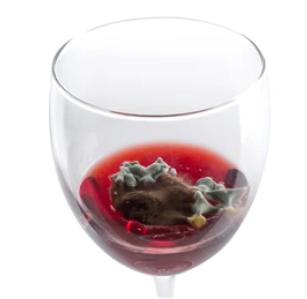
From a physicochemical and microbiological point of view, wine is a complex substrate. Different processes or modified microorganisms can coexist and constitute a complex microbial ecosystem. Microbial contamination and deterioration can occur in wine production, processing, and transportation. Of all the microorganisms that can impact wine, volatile phenols produced by Brooksblatt yeast are the most worrisome. The uncontrolled accumulation of these molecules in wine can lead to organoleptic defects, which can affect the quality of the wine. Researchers must take full advantage of advanced scientific testing techniques to improve the efficiency of wine microbiological testing and control wine safety defenses at the source to ensure wine safety and quality.
Microbiology testing is an essential indicator of food hygiene quality. Wine is a pre-packaged food tested for Salmonella, Staphylococcus aureus, and other relevant microorganisms and meets the requirements of national standards. Lifeasible offers a one-stop platform for wine microbiology testing through a global network of state-of-the-art laboratories covering a wide range of liquor, beer, yellow wine, rice wine, prepared wine, food alcohol, etc.
Our solution covers the entire process, from sample processing to data analysis; you only need to provide the original sample. In the actual testing process, our testing personnel will strictly implement the international wine microbiology testing standards and select the correct testing standards for different wine production modes to ensure that the testing results are credible and reasonable.
Our wine microbiology testing solutions include:
| Wine Microbiology Testing Items | Wine Microbiology Testing Items Description | Wine Microbiology Testing Items Description |
| Colony Count Testing in Wine | The value of the presence of colonies in a wine is an important indicator of whether the hygienic quality of that wine meets food safety quality standards. Our inspectors judge the level of sanitary quality control and hygienic quality of the wine production chain by the data from the total number of colonies in wine testing activities. |
|
| Metabolic Toxicity Testing in Wine | The basic metabolic processes and bioregulatory effects of microorganisms are key to the formation of wine flavor, which determines the wine flavor substances and the brewing process. Many types of microorganisms are found to be involved in the entire winemaking process. We offer professional solutions to detect various microorganisms in wine, including yeasts, molds, bacteria, etc. |
(1) Sample processing.
(2) Determination of wine microbiology indicators, as detailed in the table above.
(3) Generate test results.
(4) Data analysis and evaluation.
In addition, we offer standard microbiological testing for wine samples, including microscopic observation, aseptic examination, microbiological identification based on DNA sequencing, and Saccharomyces cerevisiae inoculation.
Lifeasible aims to conduct wine microbiology testing by national and local standards to comply with food safety norms and to improve the quality of wine with some reference value. Our dedicated team provides customized solutions to ensure that our clients' needs are met. If you are interested in these services or solutions, please contact us for the latest information.
Lifeasible has established a one-stop service platform for plants. In addition to obtaining customized solutions for plant genetic engineering, customers can also conduct follow-up analysis and research on plants through our analysis platform. The analytical services we provide include but are not limited to the following:
Get Latest Lifeasible News and Updates Directly to Your Inbox
Adaptive Evolutionary Mechanism of Plants
February 28, 2025
Unraveling Cotton Development: Insights from Multi-Omics Studies
February 27, 2025